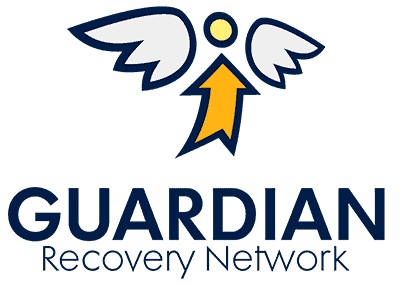Motivation Stage
Comprehensive Therapy
The majority of men and women who struggle with substance abuse and dependence have a range of underlying issues. These underlying issues can include mental illness, unresolved trauma, post-traumatic stress disorder and co-occurring behavioral addictions. In order for addiction treatment to be truly effective, all underlying issues must be adequately addressed. These underlying issues are addressed through intense therapeutic intervention in individual, group and family therapy.During the second stage of our multi-phased recovery program, known as the motivation stage, clients undergo residential inpatient treatment and partial hospitalization (PHP). This is where the bulk of the therapeutic work is done.
More About Individual Therapy
In individual therapy sessions, clients sit down with a licensed and highly experienced therapist and delve deeper into underlying issues. Individual therapy sessions allow clients to open up about topics they might not feel comfortable discussing in a group setting. Working with a trained mental health professional in a completely confidential and supportive environment is extremely beneficial. Over time, the client learns to trust his or her therapist, and the therapist learns more about the client, his or her personal history with substance abuse and the presence and origin of any underlying issues.
During the motivation stage of our multi-phased program of recovery, clients typically have access to at least one individual therapy session every week. However, because our client-to-staff ratio is consistently low, clients often have access to more individual therapy sessions per week. Our license individual therapists utilize a range of evidence-based techniques including cognitive behavioral therapy, dialectical behavior therapy, eye movement desensitization and reprocessing and more. Clients who have undergone trauma of any kind are paired with a therapist who specializes in working through unresolved trauma and related issues. Individual therapy sessions typically last for one full hour or slightly longer, and clients sometimes have the option of continuing with their individual therapist once residential inpatient treatment and partial hospitalization conclude. Continued one-on-one therapy is an important part of most aftercare programs.
Group Therapy
Group therapy sessions focus on a range of addiction recovery related topics, including:
- The Disease Model of Addiction and how addiction initially develops
- The risk factors that lead to addiction, including genetic predisposition, unresolved trauma, environmental factors, the presence of any underlying mental health conditions and consistently high stress levels
- The ways in which substance abuse and dependence effect physical, mental and emotional health and well-being
- The importance of participating in a recovery community
- Relapse prevention training
- Developing healthy coping mechanisms necessary to working through personal relapse triggers outside of a treatment setting
- Life skills training for learning the skills necessary to successfully reintegrate as productive members of society
- Healthy communication skills and how to develop and build upon mutually beneficial relationships
- Working through uncomfortable emotions in a healthy and productive way
- Good nutrition for emotional stability and recovery
- Utilizing yoga and meditation for healing
Family Therapy
At Guardian Recovery we believe that family involvement is an important part of every phase of the treatment process. We offer family therapy sessions to the loved ones of our clients as well as focused Family Workshops to help further facilitate the healing process. We believe that in order for a client to thoroughly heal, the immediate members of his or her family must heal simultaneously. The family serves as a built-in support system, and thoroughly educating the family on the root causes of addiction and the importance of prioritizing their own emotional and mental health often means the difference between relapse and continued recovery.
The topics that are covered in family therapy include:
- How to support an addicted loved one without enabling
- How to engage in self-care and prioritize personal mental and emotional health
- The importance of peer support groups designed for the loved ones of addicts and alcoholics
- The Disease Model of Addiction
- The role that the immediate family plays in long-term addiction recovery
- How to speak with a loved one who has been battling substance abuse or dependence
- What actions to take in the case of a relapse
Therapeutic Approaches We Employ
At Guardian Recovery we employ a range of evidence-based therapeutic methods, including:
Cognitive Behavioral Therapy (CBT) – This is the most frequently employed therapeutic method used by the therapeutic staff at Guardian Recovery. CBT helps clients identify and change negative patterns of thinking and behaving. This therapeutic method helps clients consistently replace self-destructive patterns while learning to live in the present moment.
Dialectical Behavioral Therapy (DBT) – DBT is very similar to CBT. The key difference is that DBT focuses on more on self-acceptance.
Eye Movement Desensitization and Reprocessing (EMDR) – This therapeutic method was first developed in the 1980s, and was exclusively used to treat men and women suffering from post-traumatic stress disorder. EMDR is extremely beneficial for clients who are struggling with unresolved trauma of any type of severity. This non-invasive technique utilizes carefully controlled eye movements to help clients process traumatic memories without reliving them (which could potentially cause more emotional damage).
Start Healing
Providing clients with a comprehensive program of therapy helps them work through all underlying issues while developing the healthy coping mechanisms necessary to the maintenance of long-term sobriety. To learn more about our comprehensive therapeutic program or to learn more about any one the therapeutic methods we commonly employ, contact us today.
Get Started Now
Give us a call 24/7

